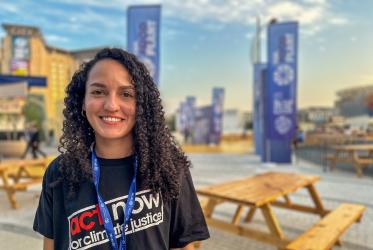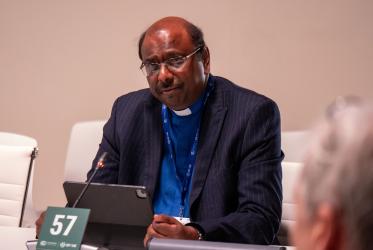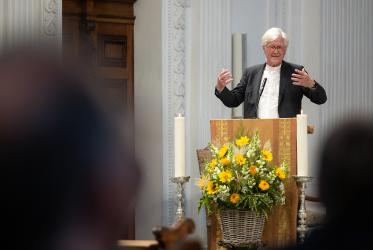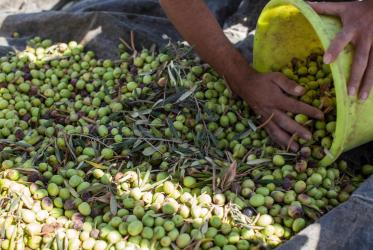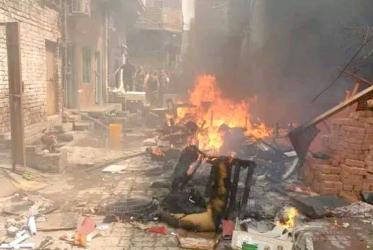Displaying 1 - 20 of 91
Words of steadfastness ring from the rubble
21 March 2024
What can churches do to prevent modern slavery?
22 February 2024
At COP28, WCC general secretary hopes for “less talk and more walk”
01 December 2023
As floods rage in eastern Africa, church acts to save the people
22 November 2023
Embracing spirituality: a global response to climate challenges
17 November 2023
“They want to live without fear and constant harassment”
25 October 2023
WCC moderator calls for a “reformation of hope” based on love
10 October 2023
Chateau de Bossey thriving as lives are transformed
08 September 2023
African Christians underscore crucial role of ecumenism
23 August 2023



